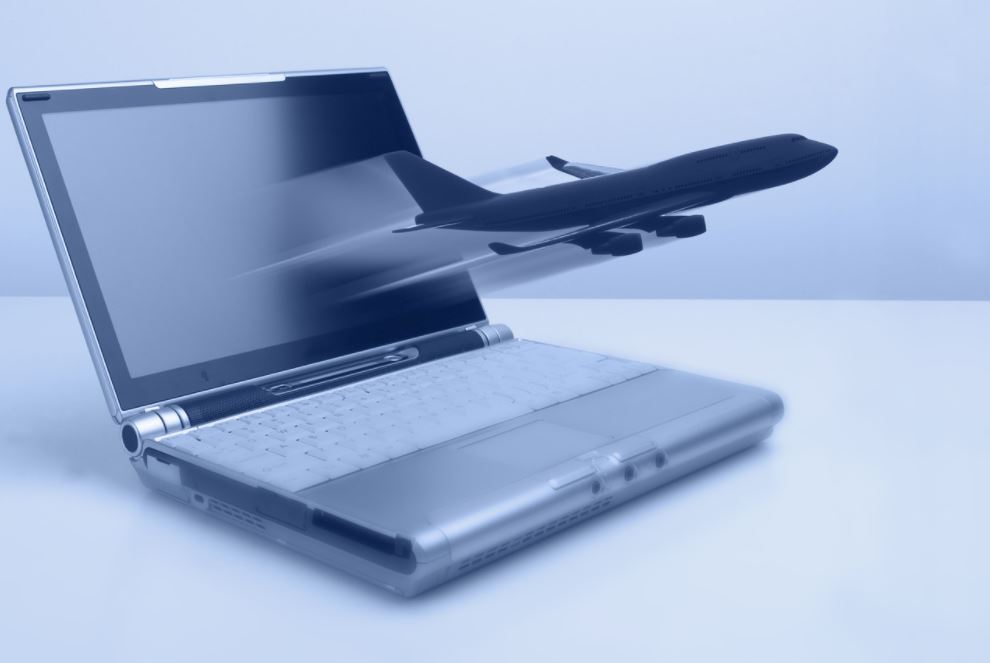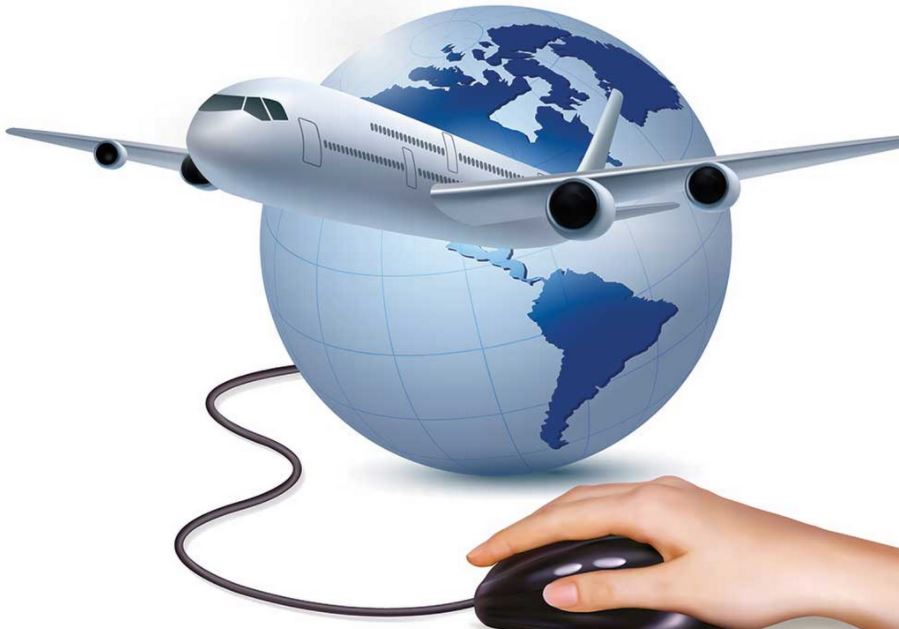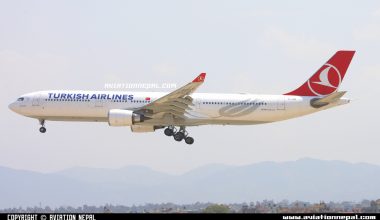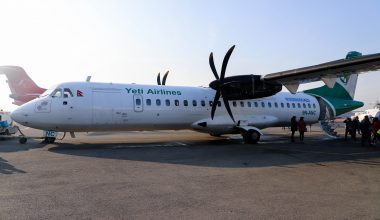An airline company is a service-oriented enterprise providing air transportation service for the passengers and their baggage, cargos, mails, etc. They provide seat availability to people and space for cargo.
Ticket booking refers to the selection of flights reserved with an airline. Airlines sell tickets which consist of flight coupons, coupon data for agent and audit, and the itinerary receipt of traveling passengers.

A ticket is a receipt describing the customer’s travel plans according to the flights booked, issued by the carrier. The passengers need airline ticket bookings to fly on the airplane they wish. Tickets can either be paper or electronic. Paper tickets contain all the flight information on a piece of paper. However, the electronic ticket, commonly known as an e-ticket, is a non-paper ticket. With this, the passenger can check-in at the airport with the confirmation code and their identification, such as passport or IDS. To confirm, a paper receipt can be issued but is not mandatory for traveling.
Read More: How To Travel Long Distance With Cheap Flight Booking?
Airline tickets are cash value documents because they are what the customers get after paying for flights. Ticket sales are the primary source of funding for operating the airlines. As airlines are profit-oriented, they need to sell as many tickets to maintain their proper funding. The fuel cost, navigation control costs, tax cost, flight crew, ground crew costs all are expenses to be recovered mainly through ticket sales. So, the ticket is not just a piece of paper; it is the main income generator for airlines.
The seat availability for purchase can be referred to as airline inventory. The inventory booking needs to be confirmed where preferred seats are available, and the reservation has been made under the traveling passenger’s name. Every reservation or airline ticket booking is recorded in Passenger Name Record(PNR).

Passenger Name Record is a unique computerized file that will reflect passengers’ booking for flights, hotels, or other services. The PNR reveals the passenger details (Name, phone number), intended flight itinerary, and other requests and information relevant to the airline (ticketing time limit and others).
The information to be included in airlines ticket booking
In all cases, the passenger itinerary must be given to the passengers when airlines ticket booking is confirmed. No standard format is issued for itinerary receipt, and each airline has the freedom to style its way and develop the layout. The basic information that ticket provides are
• Name of the passengers
• Name of the carrier (airline)
• Flight number (e.g., QR651)
• Date of flight
• Flight departure time
• Form of payment (cash, credit cards)
• Name of issuing airline/ agent and place of issue
• Ticket number
• Origin and destination Airport (City code)
• Reservation status code
• Date of ticket issue
• Restrictions/Endorsements
• Free baggage allowance (Weight/ piece system)
• Equivalent fare amount
Airline tickets, being the cash value documents, confirm the passenger’s seat on the flight. Those tickets are then exchanged to get the boarding pass. After the passenger checks on, the boarding pass is issued to the passenger in exchange for electronic ticket coupons. Such a boarding card indicates the class of service, and seat number of the flight passenger is flying in.
Airlines ticket pricing can make or break the airline. Since the deregulation of airlines, the pricing has become more complicated. Depending upon the demand and supply changes and the price of competitors, airline fixes their ticket prices. Airlines also profile their customers to assist them in making adjustments to the ticket prices.

Once the airline ticket is booked, the passenger can re-confirm to ensure the initially booked flight number and departure time haven’t fluctuated.
Management of airline ticket booking
When managing airline ticket booking, many booking factors need to be managed. E.g., the flight and ticket numbers, terminal number, baggage weight, conditions to modify airlines ticket booking or reschedule the flight, arrival and departure times, services available in-flight such as in-flight entertainment, meal services, etc. The Optional Service Information (OSI), such as VIP passenger, first-time flyer, and Special Service Request such as meals, wheelchair, UMNR, etc., also comes under ticket booking management.

An electronic ticketing system tracks the sales and usage of the electronic ticket without the issuance of paper value documents. With the electronic tickets, all the passenger information is stored in the airline’s reservation system, and when you check-in, it is indicated as the electronic one. Once the ticket has been issued, the airline’s ticketing system handles the financial and status booking.
How to book airline tickets?
The airlines use sophisticated computer reservation systems for marketing their prices, while travel agents use them to book the tickets and print the same for travelers. The airline tickets are booked through the airline reservation system. CRS stands for Computer Reservation System. A computerized system is used to access information regarding flight schedules, seat availability, fares, and other travel formalities. The airline and travel agents can reserve the tickets and issue the itinerary through CRS. It is the private reservation system of a single airline.

Similarly, multi-faceted GDS is used to book the ticket by the airline. GDS stands for Global Distribution System. They hold data of many airlines which passengers can use to investigate travel options and make bookings. When a reservation is made through GDS, the airlines ticket booking data is transmitted and stored in the airline’s private CRS.
The airline copies of the booking and a local copy of the GDS booking are connected, so when travel agents or airlines modify the airlines ticket booking (e.g., changes the flight dates, cancels the flight), the other party gets an update. Serving the marketing, sales, and distribution needs of airlines, many GDS compete. They are Amadeus, Galileo, Sabre, Worldspan, Abacus, etc. Through GDS, the airline distribution technology is brought up to date, and the airline’s profitability is sustained.
Airline 24 hour cancellation policy
The airline’s 24-hour cancellation policy helps the passenger get the money back for the ticket they book. Under the airline’s 24-hour cancellation policy, the purchased airlines ticket booking can be canceled without penalty within 24 hours. The passenger can get a refund to the original form of payment. It allows to cancel any flight within 24 hours of purchase with full cash refunds as long as three things apply:
• Must touch US soil.
• Must be booked directly with the airline, not from travel agents or online travel agents
• The flight must be at least seven days or more before ticket purchase.
The 24-hour cancellation rule applies to all fares, including economy tickets or non-refundable reservations, with the fares bought directly from the airline center.
The policy gives the customer flexibility to cancel their flights within 24 hours of purchase for full refunds or change the flight itinerary within 24 hours without charging any fees.
However, the new itinerary may be subject to additional fares or tax increments for which travelers will be responsible. The airline will refund the customers for the unused ticket coupon if they cancel the flight within 24hours.

The 24-hour cancellation policy by the US Department of Transportation doesn’t cover last-minute ticket purchases. However, the flight cancellation policies are based on particular airline rules.
The 24-hour free cancellation seems to be a very convenient, easy way for those seeking the perfect flight deal. The customer service standard must be complied with by all airlines operating to, from, or within the US. The airline retains the option to either issue the refund or allowing the passenger to hold their fares without payment for one day. The 24-hour reservation requirements need to be explained and made visible on the airline’s website.
Overbooking of airlines ticket
Sometimes, the flights which are already sold out leave with an empty seat, albeit there may have been additional demand for that flight. The empty seats result from passenger no-shows and pre-departure cancellations.
No-show passengers hold the flight reservation yet fail to use it and don’t show up at departure for boarding. Some may have missed connection. If the airlines book the ticket only up to the capacity, about 15% of seats on sold-out flights would be empty. So, to reduce the revenue loss due to spoilage, the airlines have adopted the overbooking practice.
Why does the airline accept more ticket bookings than the aircraft can accommodate?
- The airline wants to ensure full flights to maximize profits.
- To recover the cost of seat cancellation incurred by an airline due to no-show passengers.
- More airline ticket booking will allow the airline to make money from every seat.
- If the flight has an extra seat available, which will also benefit the passengers purchasing last-minute tickets, generating revenue that would otherwise be lost.
A certain level is set up, which allows the airline to sell extra seats, which will compensate even when more people arrive at the airport for check-in. Therefore, to overcome or reduce the revenue loss from spoilage and no-show, the airline overbooks the ticket.






